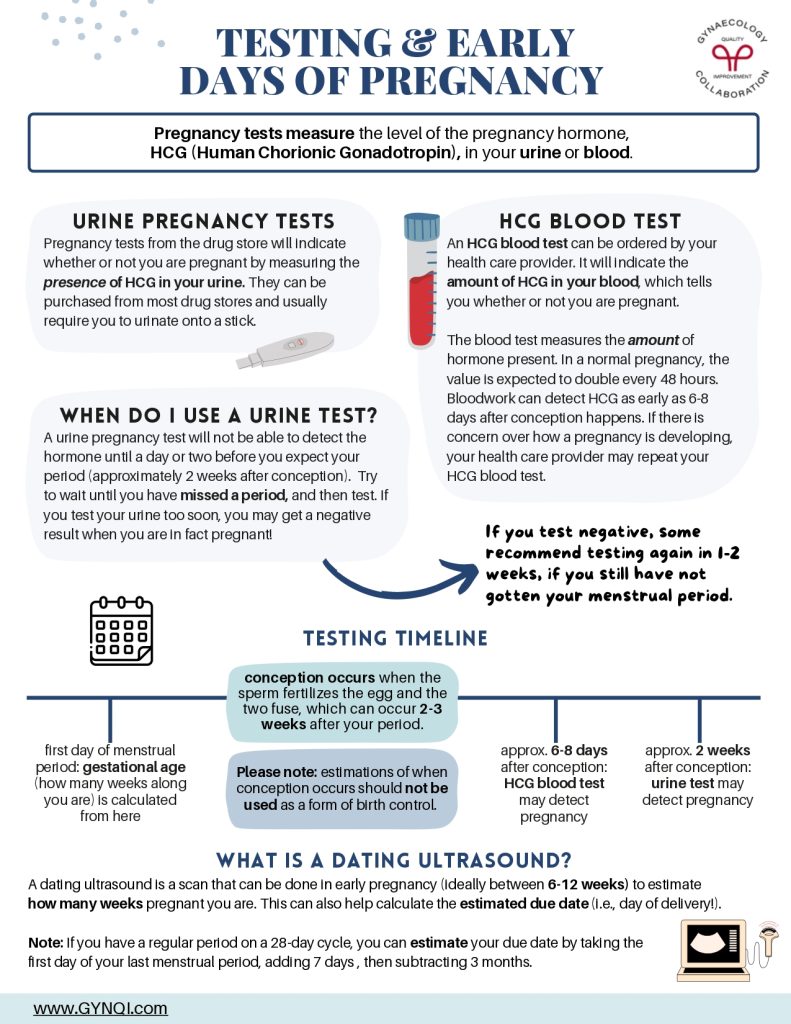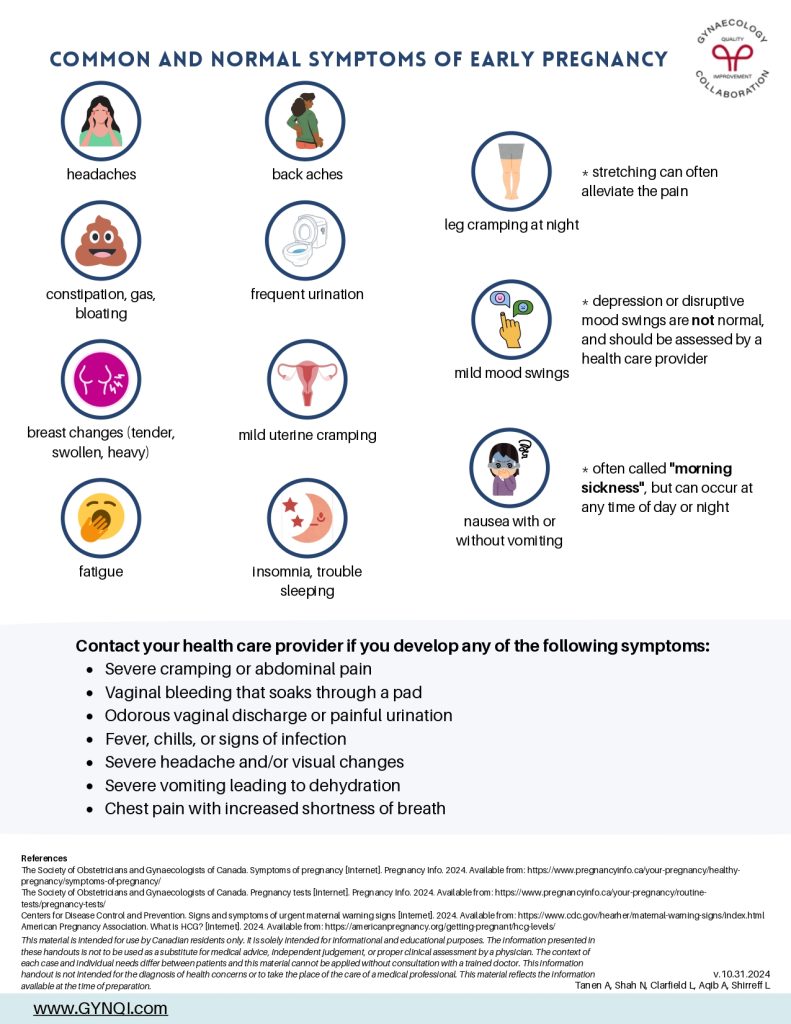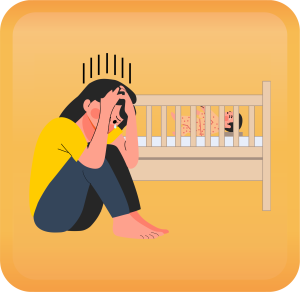
Testing & Early Days Of Pregnancy
Pregnancy tests measure the level of the pregnancy hormone, HCG (Human Chorionic Gonadotropin), in your urine or blood.
Urine Pregnancy Tests
Pregnancy tests from the drug store will indicate whether or not you are pregnant by measuring the presence of HCG in your urine. They can be purchased from most drug stores and usually require you to urinate onto a stick.
When Do I Use a Urine Test?
A urine pregnancy test will not be able to detect the hormone until a day or two before you expect your period (approximately 2 weeks after conception). Try to wait until you have missed a period, and then test. If you test your urine too soon, you may get a negative result when you are in fact pregnant!
If you test negative, some recommend testing again in 1-2 weeks, if you still have not gotten your menstrual period.
HCG Blood Test
An HCG blood test can be ordered by your health care provider. It will indicate the amount of HCG in your blood, which tells you whether or not you are pregnant.
The blood test measures the amount of hormone present. In a normal pregnancy, the value is expected to double every 48 hours. Bloodwork can detect HCG as early as 6-8 days after conception happens. If there is concern over how a pregnancy is developing, your health care provider may repeat your HCG blood test.
Testing Timeline
- First day of menstrual period: gestational age (how many weeks along you are) is calculated from here
- Conception occurs when the sperm fertilizes the egg and the two fuse, which can occur 2-3 weeks after your period.
- Approx. 6-8 days after conception: HCG blood test may detect pregnancy
- Approx. 2 weeks after conception: urine test may detect pregnancy
Please note: estimations of when conception occurs should not be used as a form of birth control.
What is a Dating Ultrasound?
A dating ultrasound is a scan that can be done in early pregnancy (ideally between 6-12 weeks) to estimate how many weeks pregnant you are. This can also help calculate the estimated due date (i.e., day of delivery!).
Note: If you have a regular period on a 28-day cycle, you can estimate your due date by taking the first day of your last menstrual period, adding 7 days , then subtracting 3 months.
Common and Normal Symptoms of Early Pregnancy
- Headaches
- Constipation, gas, bloating
- Breast changes (tender, swollen, heavy)
- Fatigue
- Back aches
- Frequent urination
- Mild uterine cramping
- Insomnia, trouble sleeping
- Leg cramping at night (stretching can often alleviate the pain)
- Mild mood swings (depression or disruptive mood swings are not normal, and should be assessed by a health care provider)
- Nausea with or without vomiting (often “morning sickness”, but can occur at any time of day or night)
Contact your health care provider if you develop any of the following symptoms:
- Severe cramping or abdominal pain
- Vaginal bleeding that soaks through a pad
- Odorous vaginal discharge or painful urination
- Fever, chills, or signs of infection
- Severe headache and/or visual changes
- Severe vomiting leading to dehydration
- Chest pain with increased shortness of breath




